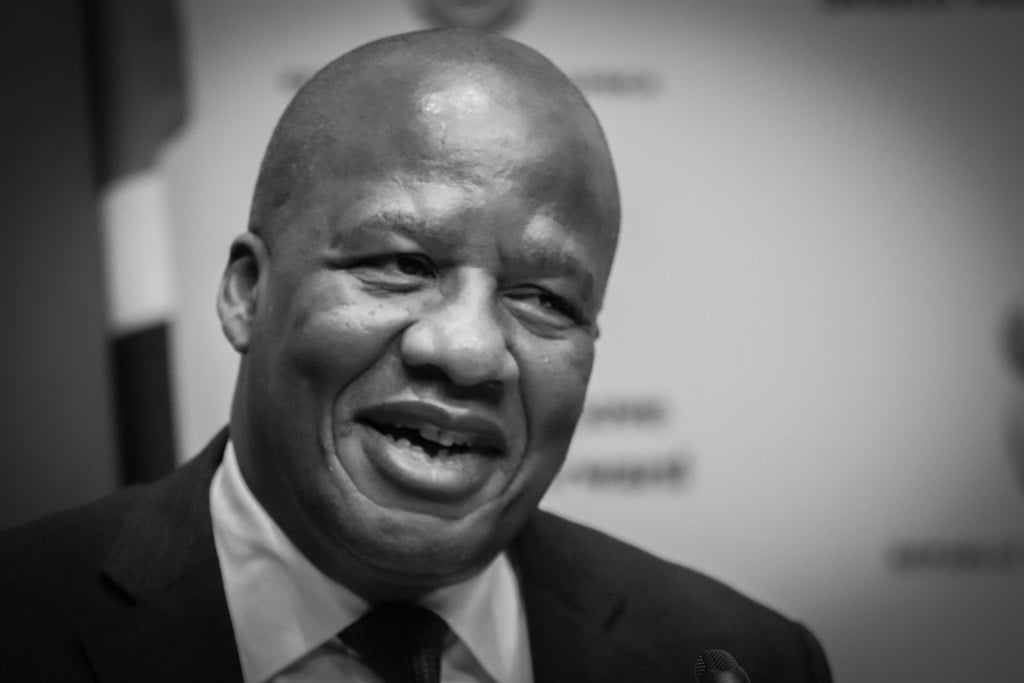
- More South African companies are reporting Covid-19 related deaths among their executives.
- Political leadership has not been spared either with the Minister in the Presidency Jackson Mthembu becoming the latest victim.
- Analysts say while the numbers of fallen leaders are not alarming, Covid-19 deaths could shift the balance of power and change organisations.
When former Soviet Union leader Vladimir Lenin died in 1924, he left a leadership vacuum that changed Russia remarkably. It gave Joseph Stalin the opportunity to ascend to power and lead as one of the bloodiest regimes recorded in history.
The Covid-19 death toll, now sitting at more than 2.1 million worldwide and close to 40 000 in South Africa, could potentially tilt power scales in boardrooms and among political parties.
The death of the Minister in the Presidency Jackson Mthembu is just one high profile example of leaders succumbing to the complications of Covid-19. But he is not the first. In 2020, the virus claimed the lives of former Nelson Mandela Bay mayor Mongameli Bobani and South Africa's ambassador to Denmark Zindzi Mandela, to name a few.
This past week, big corporates including Spur and Sibanye-Stillwater, also mourned the passing of senior executives.
In between the deaths that shook the nation, ministers – including Health Minister Zweli Mkhize - more company executives and board members have had to take time off to recuperate after testing positive for Covid-19.
"It upsets the balance of power"
While the death of these political and big business leaders will not change the world order to the extent that Lenin's death changed Russia, political analyst Dr Somadoda Fikeni says the virus had the potential to disrupt balance of power when senior leaders are abruptly taken away.
"Proportionally, we can't talk of a leadership vacuum, but it is becoming an issue when the most strategic and key leaders go," he said.
Fikeni said, apart from the fact that some leaders are difficult to replace, when they are suddenly not there without succession plans in place, "at times it upsets the balance of power".
He pointed out that if the late KwaZulu-Natal MEC for Transport Bheki Ntuli, who also dies from Covid-19 complications, was a critical leader to balance the power of different factions in the in the province, his death will create a crisis.
In a eulogy read at Ntuli's official provincial funeral service, Premier Sihle Zikalala said the late MEC "despised factions" because he understood that divisions were the enemy of progress in a province.
Everyone is vulnerable, no matter the societal status
Martin Kingston, chairperson of Rothschild & Co’s South African unit and Steering Committee Co-Chairperson for Business for SA, said any death was one too many, whether it was political leaders or people who wield authority in boardrooms.
While business and political leaders are usually insulated from major health scares because of their wealth and access to private health care, Kingston said everyone needed to realise that Covid-19 did not discriminate on the basis of prestige, position, or even age.
"Obviously everyone is more vulnerable than they were before the pandemic and that extends to companies and their executives. So, an issue that we'd normally consider during ordinary course of business such as succession planning and over-reliance on certain individuals, those issues have been magnified," he said.
Kingston said the issue of succession planning has been thrust into the spotlight in a way it hasn't before because of the higher-than-normal mortality rate.
But Kingston believes the answer to preventing more deaths that could destabilise companies remains simple – observing social distancing measures that government has put in place including the wearing of masks all the time.
Is it time for everyone to go back to working from home?
But the often-unavoidable travel and meetings that these high-profile individuals have to attend remains a key risk factor. The question now is; can they do less of that?
"In my opinion we tend to insulate ourselves in an effort to preserve the precious stability acquired during the pre-Covid era. Resilience comes from our capacity to adapt, not by keeping our defensive structures intact at all costs," said Sanchen Henning, an Associate Professor at Unisa's Graduate School of Business Leadership.
Henning added that loss of control through the loss of strong leaders understandably disrupts and shocks everyone. This is because employees in companies are institutionalised and prefer predictability because it brings a sense of comfort. This stability of leadership especially in turbulent times provide some security, she said.
However, Henning believes that the opposite may also be true.
"Equilibrium may not always be the desirable state…Sudden change or disruption may result in new behaviours amongst employees."
Fikeni said it was simply impossible to keep executives and political leaders at home. The important thing was that they should observe social distancing protocols at all times.
"But again, this is an imperfect science. In the balance of probabilities, you are saying 'if you follow these rules you will be fine'.
"But sometimes you go to a meeting which was in an open tent. When the rain comes, you go sit in an enclosed venue and during that time you are talking, you are drinking and it catches you up," he said.
